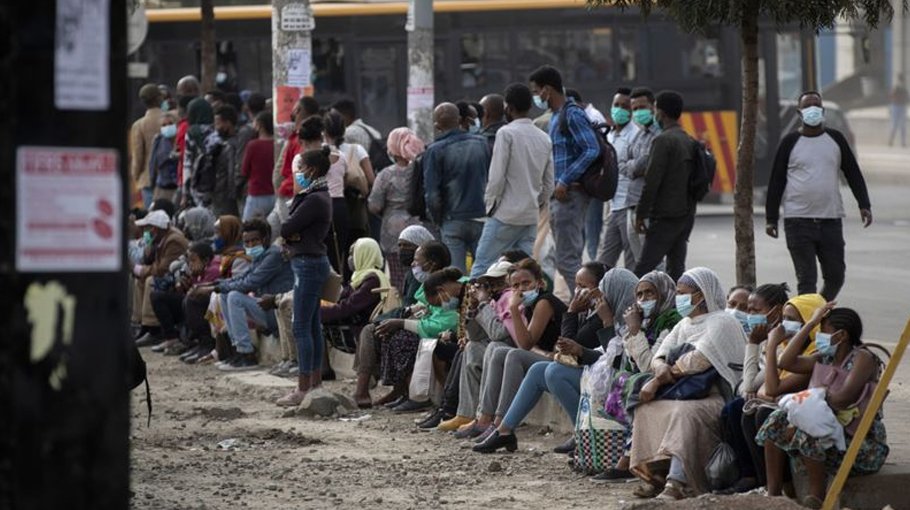Global conflicts: Why no one wins in a war

The concept of development has been closely linked with the concept of security in this century. This so-called development-security nexus is not only limited to theoretical framing in academic literature but has also become the main mantra of international development assistance.
Still, a big question remains: Exactly whose development and security is in focus when the rich industrialised countries give aid and assistance?
Unfortunately, in most cases, the aid givers’ development and security are prioritised, not the countries that really need them.
Though every international organisation and multilateral institution claims to work for development and security, the world is fast sliding into a new era of conflict and violence.
The UN Secretary-General has recently warned that peace is more under threat worldwide than in the last eight decades since the end of World War II. The number of armed conflicts is rising, and conflict-caused fatalities are also increasing.
Active conflicts on the rise
Data from the Uppsala Conflict Data Program (UCDP) at Uppsala University show that there are at least 54 conflicts in the world where a state is a party against another state or an organised group.
The number of these active conflicts is historically high (there were only 38 active conflicts in 2001). Moreover, in 2021 alone, at least 119,000 have lost their lives in various conflicts.
In recent years, conflict clusters have shifted mainly to Africa and parts of Asia and South America. In 2022, Europe was affected by it due to the war in Ukraine.
The world is not only witnessing an increase in the number of conflicts in which the state is a party fighting against another state or a group.
UCDP data also shows a significant increase in the numbers of ‘non-state violence’ where the state is not a party, and the conflict is between two armed groups, and ‘one-sided violence’ where a state or a group uses violence against civilians.
A terrible cost
The world is spending more than $2 trillion annually on the military, and countries have started acquiring more nuclear weapons. While the world is now witnessing the highest number of violent armed conflicts since 1945, one-fourth of its population lives in conflict-affected areas.
UN peace operations are also becoming more prolonged, and the results have become more uncertain. Multilateral peacekeeping is not as effective these days as it was in its golden period of the 1990s.
Almost 90 million people are displaced by conflict and violence. The UN estimates that 339 million people worldwide will need humanitarian assistance in 2023.
No war is a just war; whoever
is fighting and whatever might be the reason. Armed
conflicts only bring deathand destruction, and it is
impossible even to dream of
development and security
Peace is a prerequisite for development to be sustainable and security to be comprehensive. Generally speaking, the more peaceful a society, the more affluent and secure it is.
Peace creates an environment for a society to progress and prosper. The absence of armed conflicts helps the states to free up human and economic resources to provide critical infrastructure, improve health and education sectors, and emphasise and strengthen the rule of law.
Violence is an important driver, directly and indirectly, adversely affecting food security in conflict-affected regions. In 2021, 139 million people were forced into acute food insecurity due to armed conflicts. Peace is critically important for food security as well as water, energy, and health security.
Environmental havoc
Armed conflicts disrupt the water system, accidentally and deliberately, crucial to the health and well-being of humans and the environment.
The strong link between conflicts and energy supply has been well-established for over a century, and the Ukraine War has once again shown why peace is essential for the world to be energy secured. It is no rocket science that in a violent conflict, health security is reduced for affected populations.
The causes of violent conflict vary considerably between countries and between regions, but the effect on development and security is uniformly negative.
On the other hand, the connection between peace with equitable development and all-around security is a straightforward one.
It is somewhat meaningless for international development agencies to talk about development and security and the multilateral institutions prioritising Sustainable Development Goals while the world is witnessing increasingly violent conflicts.
The international community’s focus should be to end all armed conflicts if it is serious about making progress in bringing development and security to the global south.
Rich industrialised countries are directly or indirectly involved in many ongoing armed conflicts in the world. All efforts should be made to end wars in which one country is fighting against another.
No war is a just war; whoever is fighting and whatever might be the reason. Armed conflicts only bring death and destruction, and it is impossible even to dream of development and security.
At the same time, vital resources are being diverted to fight wars rather than investing in the sustainable growth and well-being of a society as a whole.
Ashok Swain is a professor of peace and conflict research at Uppsala University, Sweden. Source: Gulf News



